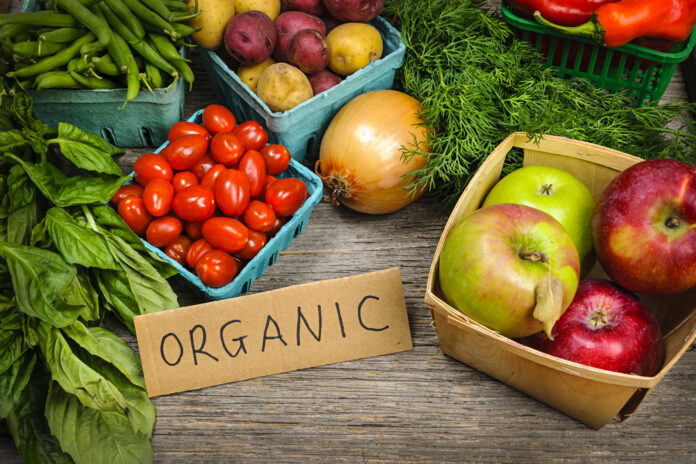
Organic or non-organic? That is the question. Once upon a time, we didn’t need to think about buying organic or not and didn’t have to weigh the benefits of the added expense to our grocery list. This is because organic food was the only option.
However, as rising demand forced growers to plant more, the need for pesticides to help save more crops from bug infestation also increased. Add to that the presence of more genetically modified food today, and the organic food industry has boomed. And organic food has continued to grow in popularity. The Packer reports that organic produce has topped $9 billion for the first time and has grown in sales by 5.5% in 2021.
So what’s the hype? Is it worth it to buy organic produce, or is it just an expensive fad?
Dr. Andrew Weil seems to think it’s worth it. The creator of the anti-inflammatory diet says the following 12 foods have the highest pesticide load, and therefore the organic option should always be purchased:
- Strawberries
- Spinach
- Kale, collard, mustard greens
- Nectarines
- Apples
- Grapes
- Bell and hot peppers
- Cherries
- Peaches
- Pears
- Celery
- Tomatoes
Because pesticides are linked to many issues like hormone disruption, skin irritation and negative effects on the nervous system, it definitely seems worth it to follow this advice.
Another thing to consider when buying organic is our environment. Organic food is a better option for our planet because, as reported by Harvard, it “supports an agricultural system that avoids synthetic fertilizers and pesticides and promotes a more biodiverse ecosystem, with attention to the health of waterways, soil, air, wildlife, farm workers, and the climate.” I don’t know about you, but I definitely think a more biodiverse ecosystem is worth it.”
So, when determining whether or not organic produce is worth it, consider this: which would you rather invest in, your sickness or your health? This is a key consideration when thinking about the worthiness of buying organic. You can think of the added cost of organic produce as an investment or an insurance policy. By buying organic produce in the present, especially the dirty dozen, one can hope to pay less for hospitalizations and illness in the future.
Not all produce needs to be organic though. Similar to the dirty dozen list, there is the clean fifteen list as well, which are foods that are low in pesticides and considered safe to buy in their non-organic form.
https://www.thepacker.com/news/organic/us-organic-produce-sales-top-9-billion-2021-55-2020
https://www.drweil.com/diet-nutrition/anti-inflammatory-diet-pyramid/foods-you-should-always-buy-organic/
https://www.epa.gov/pesticide-science-and-assessing-pesticide-risks/human-health-issues-related-pesticides
https://www.drweil.com/diet-nutrition/anti-inflammatory-diet-pyramid/foods-you-dont-have-to-buy-organic/



















